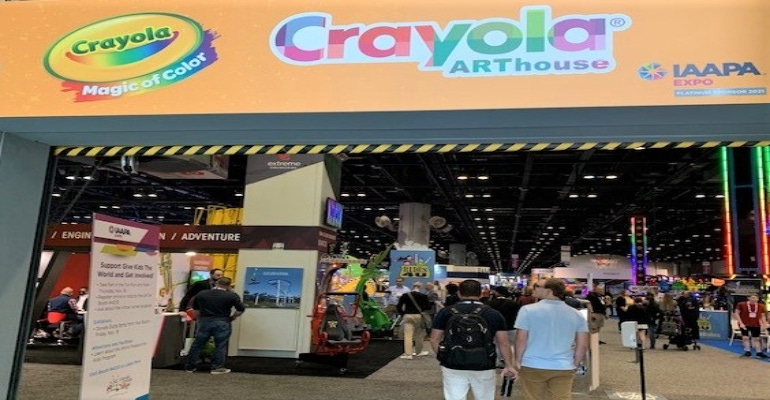Brands Work on Multiple Approaches to LBE
With pandemic restrictions slowly lifting, curators of location-based experiences (LBEs) are figuring out ways to get visitors to their projects.
November 23, 2021

As the theme parks and family entertainment centers that are the core business of much of its constituency have begun to return toward their formal level of operation, last week’s IAAPA (International Association of Amusement Parks and Attractions) Expo stood as a first step toward a return to normalcy. The number of attendees (more than 28,000 over five days) was two-thirds the 2019 total, and the number of exhibitors (878) was off 23%. But that reduction, in the words of one attendee, led to “more meaningful conversations with more meaningful existing and potential partners.”
Disruption, but new opportunities
While the pandemic created a major disruption for theme parks, their suppliers, and the lengthy timelines in which big attractions are developed, it also has freed up some shorter-term opportunities, particularly in malls and shopping centers that are looking for ways to lure e-shoppers out from behind their keyboards with experiential attractions.
Among the ventures on Crayola’s drawing board, for example, is Magic of Color, a freestanding interactive exploration of the links between color and cultures designed for mall placements.
“It’s a reflection of the way the industry is going; a lot of it is seeing a drop of mall traffic, but it’s also about seeing the value of the experiences,” says Craig Herman, vice president, global brand experiences and publishing at Peanuts Worldwide, which along with Crayola was an Expo sponsor. “It’s not just filling a gap; it’s seeing opportunity in a way maybe they didn’t before.” Though no brand owners were exhibitors, we saw licensing executives from companies including Hershey, Sony, Lionsgate, ViacomCBS, Microsoft and Rovio in and around the Expo.
Crayola launched a multifaceted location-based experience campaign, most notably to license its Crayola Experience; it has owned and operated five of them around the U.S., but now has begun meeting with potential partners to license the concept both domestically and internationally.
You May Also Like






